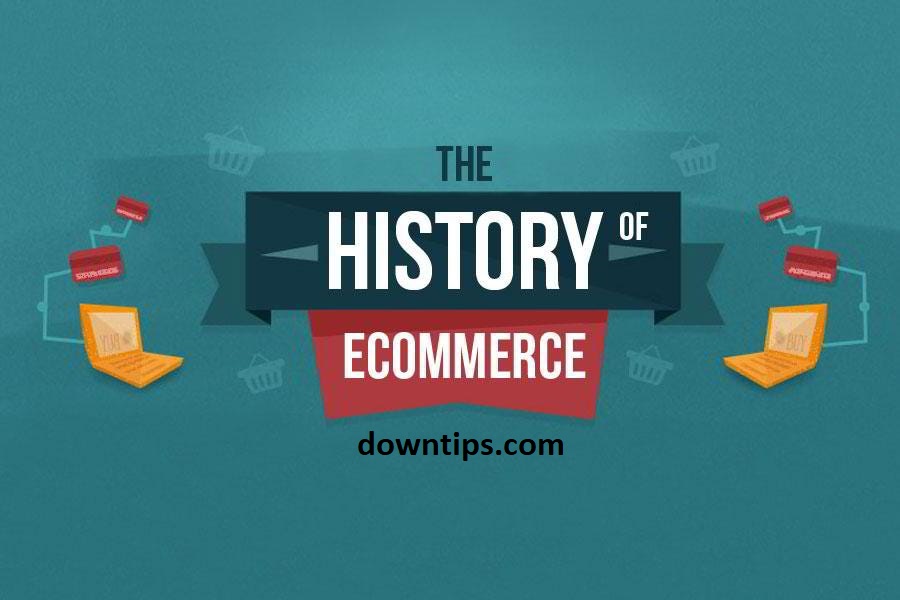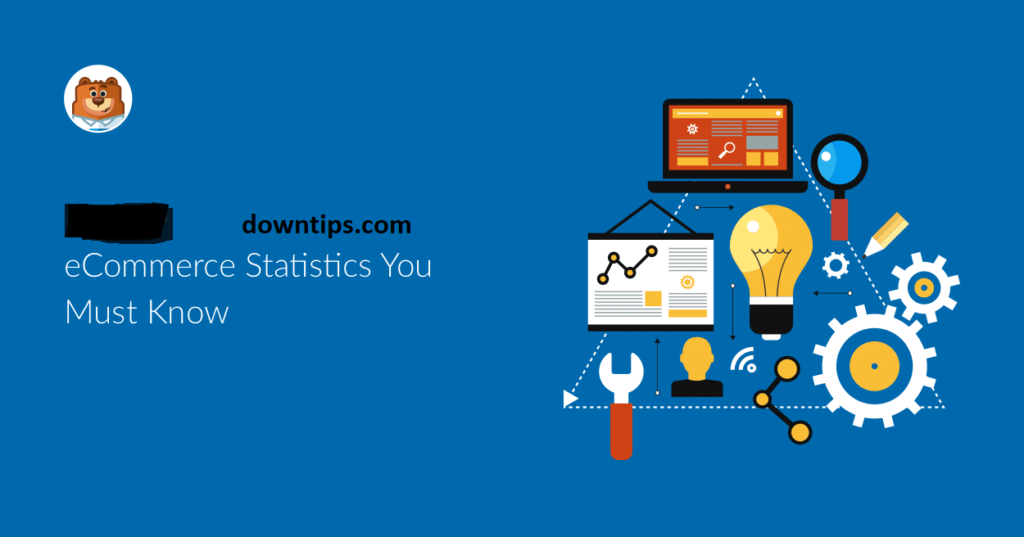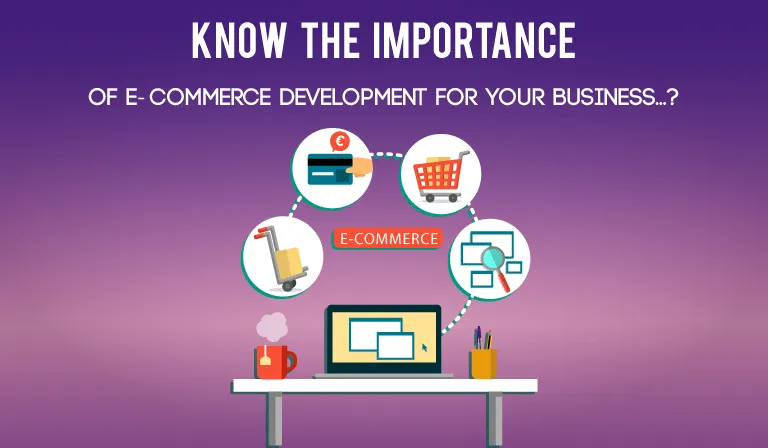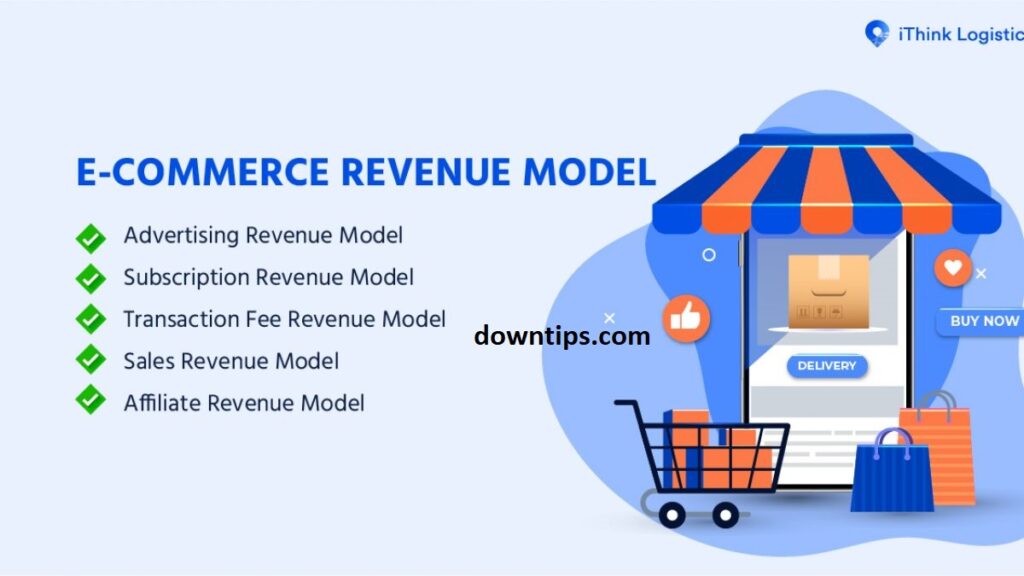What is E-commerce? And How to Build Successful E-commerce
Making money online from e-commerce can be accomplished through various strategies depending on your role in the e-commerce ecosystem. Here are several ways individuals or businesses can generate revenue through e-commerce. What is E-commerce? And How to Build Successful E-commerce
History of E-commerce

Electronic Funds Transfer (EFT) and Electronic Data Interchange (EDI) were the only sources for users to initiate transactions and exchange business data online. When it comes to the history of eCommerce, dates back to 1969, CompuServe, the first major eCommerce company founded by Jeffrey Wilkins and Dr. John R. Goltz. This company was built using a dial-up connection. However, E-Commerce explored its full length after 1991 when the internet was available for commercial use. What is E-commerce? And How to Build Successful E-commerce
Major eCommerce Business Statistics You Want to Know

The growth of the E-Commerce business has skyrocketed in recent times, especially, since the clothing and beauty segments are seeing double-digit growth constantly. This trend isn’t bound to slow down. As the below statistics show, the global e-commerce industry continues to thrive at a steady pace and is supported by several factors including affordability, rising consumer affluence, and infrastructure improvement. Today, going global is not a strategy, but it is a necessity to succeed, and tools like e-commerce scrapers can help businesses stay competitive in this rapidly evolving landscape.
As we said, the E-Commerce industry will accelerate at a fast pace in the upcoming years. Here’s the proof –
- In 2021, more than 2.14 billion people are expected to shop online. (Statista.com)
- Global e-retail sales projected growth of up to $USD 4.8 trillion in 2021 from $USD 2.8 trillion in 2018.
- By 2023, eCommerce will account for around 22% share of global retail sales.
- E-commerce accounts for about 8.1% share of the total retail sales in North America.
- Amazon is the largest eCommerce company in the U.S.
- India is the fastest-growing country in the E-Commerce industry during 2019-2023.
The global numbers apart, let’s see how the regional growth is budding –
China has the largest E-Commerce market in the world. With countries such as China and India in the forefront, Asia accounts for the largest share in the global E-commerce sector with about $831 billion, followed by North America and Europe with $552 billion and $346 billion respectively (Shopify).
How important is E-Commerce Business?

E-commerce has become increasingly vital in today’s globalized and technologically driven economy. Its importance lies in its transformative impact on traditional business models, offering unprecedented opportunities for businesses of all sizes. The convenience, accessibility, and expansive reach provided by E-commerce enables companies to connect with a diverse and global customer base, breaking down geographical barriers. Moreover, the flexibility and scalability inherent in online commerce empower entrepreneurs to launch and grow businesses more efficiently. E-commerce not only enhances customer convenience but also fosters innovation, driving competition and pushing businesses to adapt to digital trends. In essence, the significance of e-commerce lies in its ability to revolutionize the way businesses operate, expanding markets and reshaping the dynamics of commerce in the modern world.
A few Advantages of E-commerce Business:
E-commerce businesses offer numerous advantages that contribute to their widespread adoption and success. One key benefit is the unparalleled accessibility and convenience they provide to both businesses and consumers. Through online platforms, customers can browse and purchase products or services from the comfort of their homes, while businesses can reach a global audience without the constraints of physical storefronts.
E-commerce fosters cost-effectiveness by reducing overhead expenses associated with traditional retail, such as rent and utilities. Additionally, it enables businesses to gather and analyze customer data, facilitating personalized marketing strategies and improving the overall customer experience.
The scalability of e-commerce allows for seamless expansion and adaptation to market trends, and the integration of secure payment systems ensures smooth and trustworthy transactions. Overall, the advantages of e-commerce encompass efficiency, global reach, cost savings, and enhanced customer engagement, making it a transformative force in modern commerce.
E-commerce Business Revenue Models:

E-commerce businesses employ various revenue models to monetize their online platforms and services. One prevalent model is the traditional retail model, where businesses sell products directly to customers. Another common approach is the subscription model, where customers pay a recurring fee for access to products or services, often seen in streaming platforms or subscription boxes.
The advertising model involves generating revenue through ad placements on the e-commerce platform, while the affiliate marketing model earns commissions by promoting other companies’ products. Some e-commerce businesses also adopt the freemium model, providing basic services for free and charging for premium features or upgrades.
The marketplace model involves charging fees to third-party sellers for listing and selling products on the platform. Additionally, data monetization has emerged as a revenue model, where businesses leverage customer data for targeted advertising or sell anonymized data to third parties. E-commerce businesses often combine multiple revenue models to diversify income streams and adapt to market demands, showcasing the flexibility and innovation inherent in this dynamic sector.
- Sell Products Online:
- Create an Online Store: Set up your e-commerce website using platforms like Shopify, WooCommerce (for WordPress), Magento, or others.
- Marketplace Sales: List your products on popular online marketplaces like Amazon, eBay, Etsy, or platforms specific to your niche.
- Dropshipping:
- Operate an online store without handling the inventory directly. When a customer places an order, the product is shipped directly from the supplier to the customer.
- Affiliate Marketing:
- Promote other companies’ products on your website or social media channels and earn a commission for every sale made through your unique affiliate link.
- Digital Products:
- Sell digital products like ebooks, online courses, software, stock photos, or any other downloadable content.
- Subscription Services:
- Offer subscription-based services or products, such as subscription boxes, streaming services, or membership sites.
- Freelancing Services:
- Provide services related to e-commerce, such as web design, content creation, digital marketing, or product photography, on platforms like Fiverr or Upwork.
- Print on Demand:
- Design custom merchandise and sell it through print-on-demand services. When a customer makes a purchase, the product is printed and shipped on demand.
- Consulting and Training:
- Share your expertise in e-commerce by offering consulting services to businesses or providing training and workshops on e-commerce strategies.
- Online Advertising:
- Monetize your website or blog by incorporating online advertising, such as Google AdSense, to earn revenue through ad clicks or impressions.
- E-commerce Consulting:
- Provide consulting services to businesses looking to improve their online presence, optimize their e-commerce strategy, or solve specific challenges.
- Create and Sell Apps or Plugins:
- Develop and sell e-commerce-related apps, plugins, or extensions for popular e-commerce platforms.
- Social Media Marketing:
- Leverage social media platforms to promote products or services, and earn through sponsored posts, affiliate marketing, or direct sales.
Remember, success in e-commerce often requires a combination of a solid business plan, effective marketing, excellent customer service, and adapting to the ever-changing online landscape. It’s essential to stay informed about industry trends and continuously optimize your approach to remain competitive.
What is E-commerce? And How to Build Successful E-commerce?
How To Make Money From Affiliate Marketing
